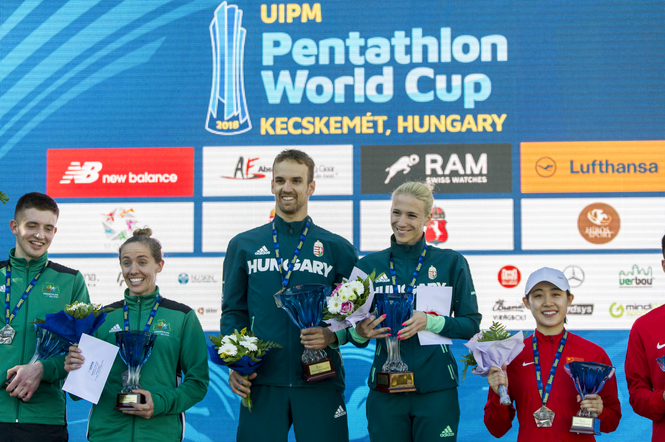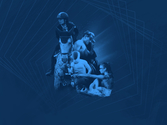Road to Tokyo: Bence Demeter (HUN) aims to make his father – and his country – proud
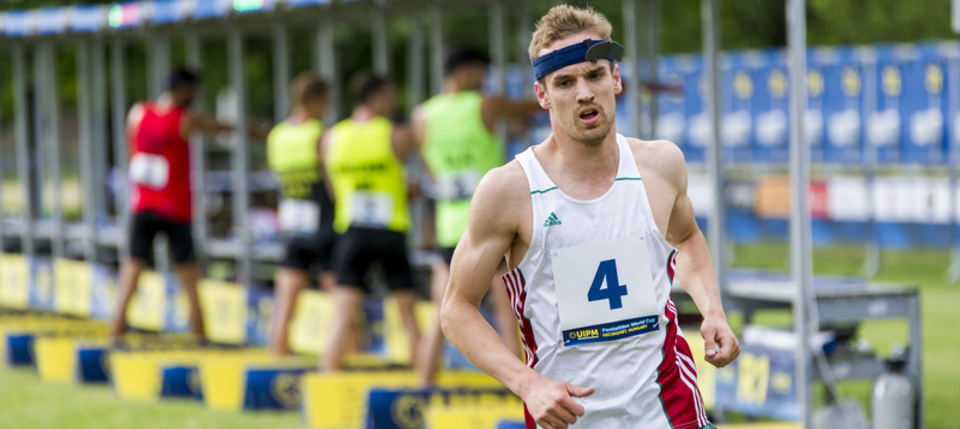
History and Hungary go hand in hand when it comes to Modern Pentathlon. So it’s no surprise to learn that one of Bence Demeter’s drivers is the desire to become part of this heritage.
The 30-year-old from Hungary has been from an early age. Having followed his father – the 1989 European champion, Jozsef – into the sport, he became UIPM world champion at Under 19 and Junior level and picked up his first senior medal at the UIPM Pentathlon World Cup in Chengdu (CHN) in 2011.
The next few years were a tough learning curve for Demeter (HUN), as his elder team-mate Adam Marosi (HUN) continued to enjoy national and global prominence. But he turned a corner in 2017, winning the season-opening Pentathlon World Cup in Los Angeles (USA) and then silver in Kecskemet (HUN) – 12 months later he again won medals in the first two competitions of the season.
Just when it looked like the 2019 season was going to be a disappointment, with injury seeming to hamper his Olympic hopes, Demeter (HUN) did just enough at the European Championships to finish 7th and book a quota place for his country at Tokyo 2020 (later postponed to 2021).
In the latest #RoadToTokyo interview, Demeter (HUN) talks us through that tricky 2019 season and reflects on his first Olympic experience in Rio in 2016.
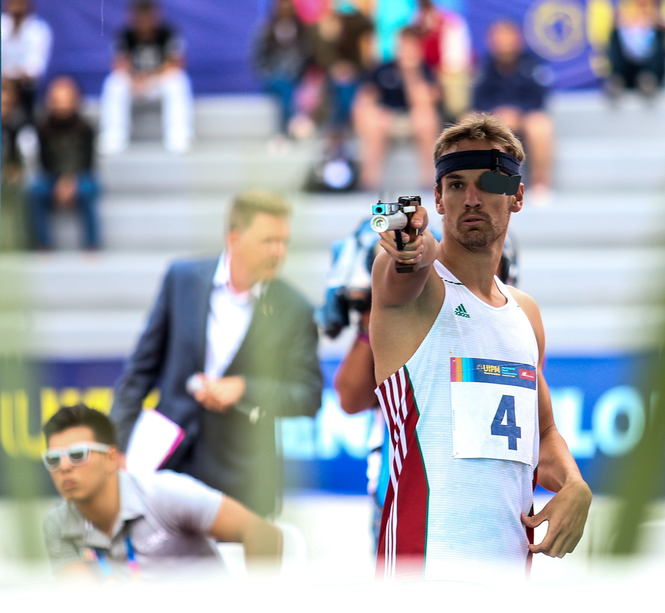
Q: How did it feel in 2019 when you secured a quota place for the Tokyo Olympics at the European Championships?
A: It was an awesome feeling. I was struggling with an ankle injury in the beginning of 2019, I had two operations. So, after that I felt like FINALLY, hard work and my patience paid off! I had a great preparation that summer, everything worked out well and I started to get back my strength.
Q: You finished 17th at the Rio 2016 Olympic Games. How do you reflect on that now?
A: Nothing can compare to an Olympic Games as a competition, mentally for sure. I was well-prepared in Rio physically, but I did not have much luck with my horse, so basically, I lost the chance to fight for the points after Riding. There are things I could have done differently, but that was my first Olympics, so it had to be done like that to change my mind about the future.
Q: If selected to compete for Hungary at Tokyo 2020 in 2021, will you prepare any differently compared to Rio 2016?
A: Absolutely! I have a vision in my mind, so hopefully we can manage it with my coaches together.
Q: What do you think about the Olympics being postponed until 2021?
A: In the middle of the second virus wave, I just still hope the Olympic Games will be held in August 2021. Honestly, I was really upset about the postponement, but it was the best decision in these hard times. All of us had to understand and tried to adapt the new situation the best way it was possible.
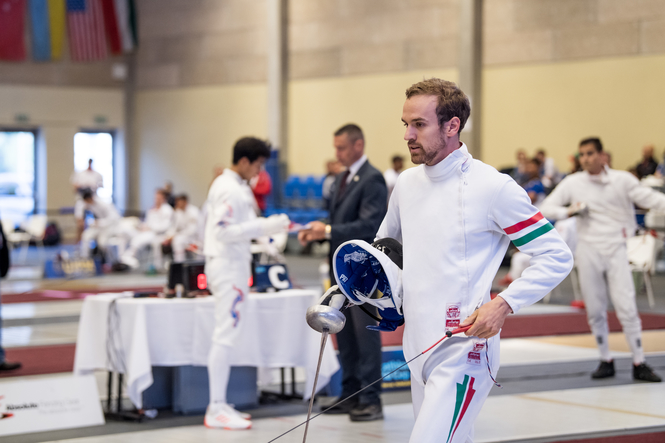
Q: How have you been keeping up your training during the Coronavirus crisis?
A: I tried to continue my daily routine with training outside. Our government let the Olympic athletes train officially after the lockdown. Beside this, I was working out at home, specializing in small details I have always wanted to improve.
Q: What has been the most challenging part?
A: I am an extremely competitive person, so the most challenging part was and still is, living without competitions. I felt totally ready to compete in March 2020, then the postponement was announced some days before the second UIPM Pentathlon World Cup, so after that it was hard to get back my motivation to push myself to the limits.
Q: And what positive things have you seen?
A: The positive way of thinking was necessary to practise in the past months. I cared more about my private life and mental health and I can admit it has the most positive effect on my life right now. I feel balanced and stronger mentally than ever, which can be the key to success for me in 2021.
Q: Your father Jozsef was European champion. Did he inspire you to take up the Modern Pentathlon? Tell us how you started in the sport.
A: Yes, my father inspired me to start Modern Pentathlon when I was eight. We started with the base, so swimming and running. Then at 14 I started to practise all five disciplines. Sport was always an important thing in our family and my brother [Gergely] was doing Modern Pentathlon too, so I guess my father was happy that we continued the tradition. I really enjoyed the complexity of the sport and coaches saw potentials inside me, so I took it as my profession.
Q: What motivates you in training?
A: Be better than yesterday. Firstly, my goal is to secure my place at the Olympic Games in 2021. Hungarian Modern Pentathlon has strong tradition, and we have great athletes to fight for the quota places inside the country as well. Then, if I am thinking about the Olympic Games … of course that is the biggest motivation for me every day! If I have a good preparation close to my top performance, I could stay healthy in body and calm in mind and nothing wrong can happen in Tokyo.
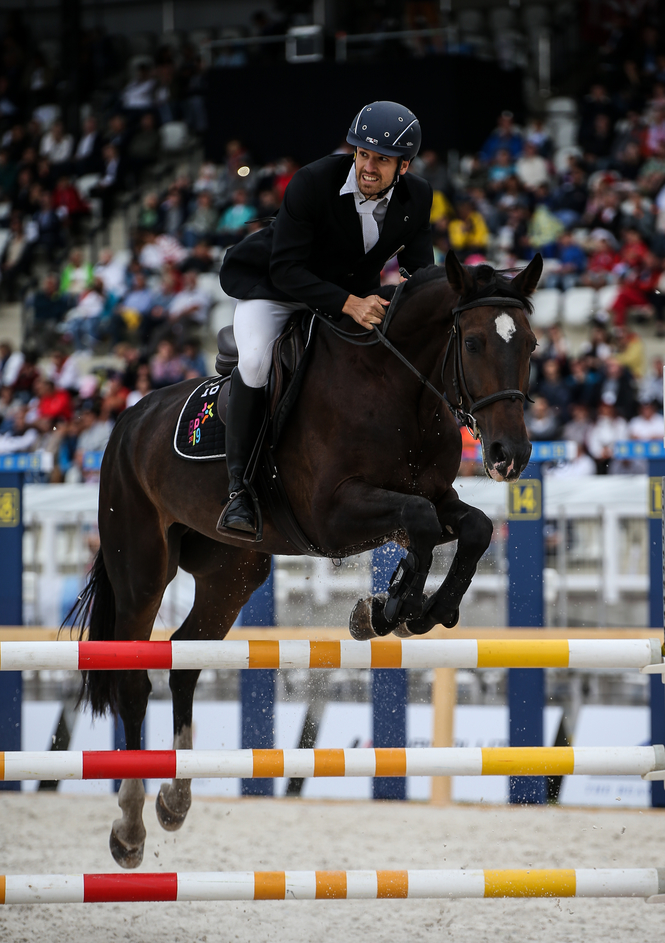
Q: Describe yourself as an athlete in three words.
A: Ambitious, serious, self-organizer.
Q: Who are your role models in sport, and in life?
A: My role models in sport are my father and Andras Balczo, three times Modern Pentathlon Olympic gold medallist. Otherwise, many people inspire me, but nowadays it is hard to believe what we see on social media about someone’s life, so I prefer not to mention anyone, instead bringing out the best in my own life.
Q: What is your ultimate ambition in Modern Pentathlon?
A: To get into the history of Modern Pentathlon. I also would like to develop my sport in Hungary after my retirement.
